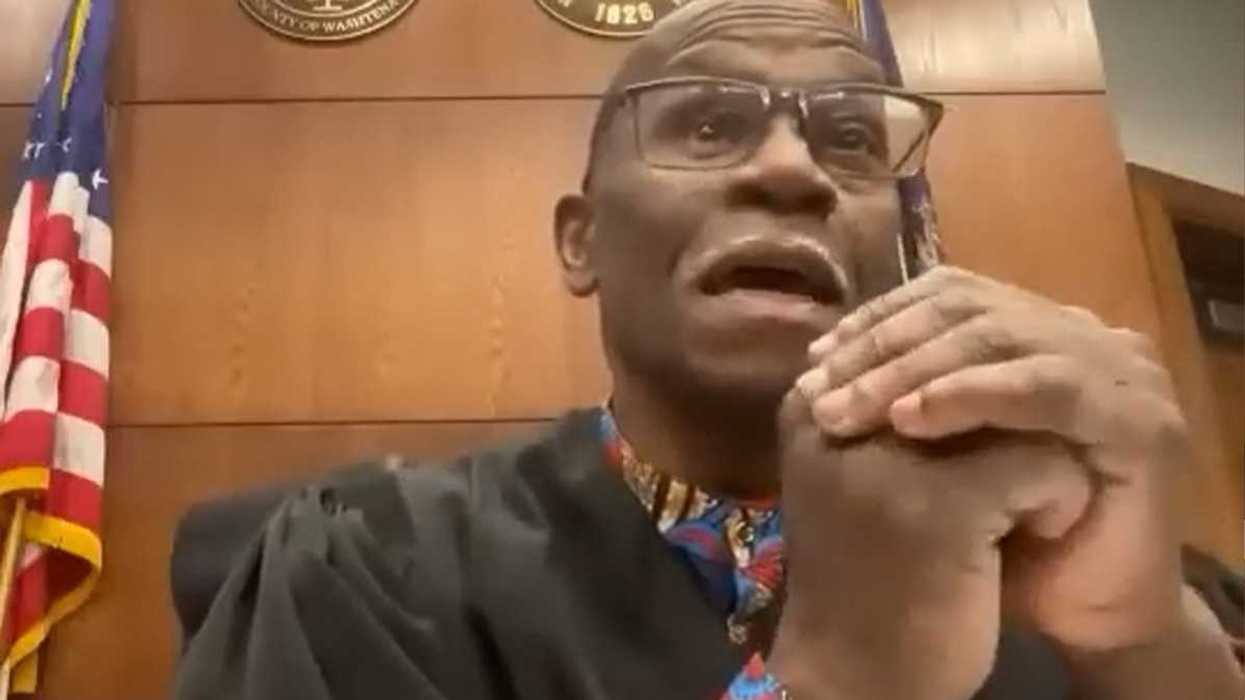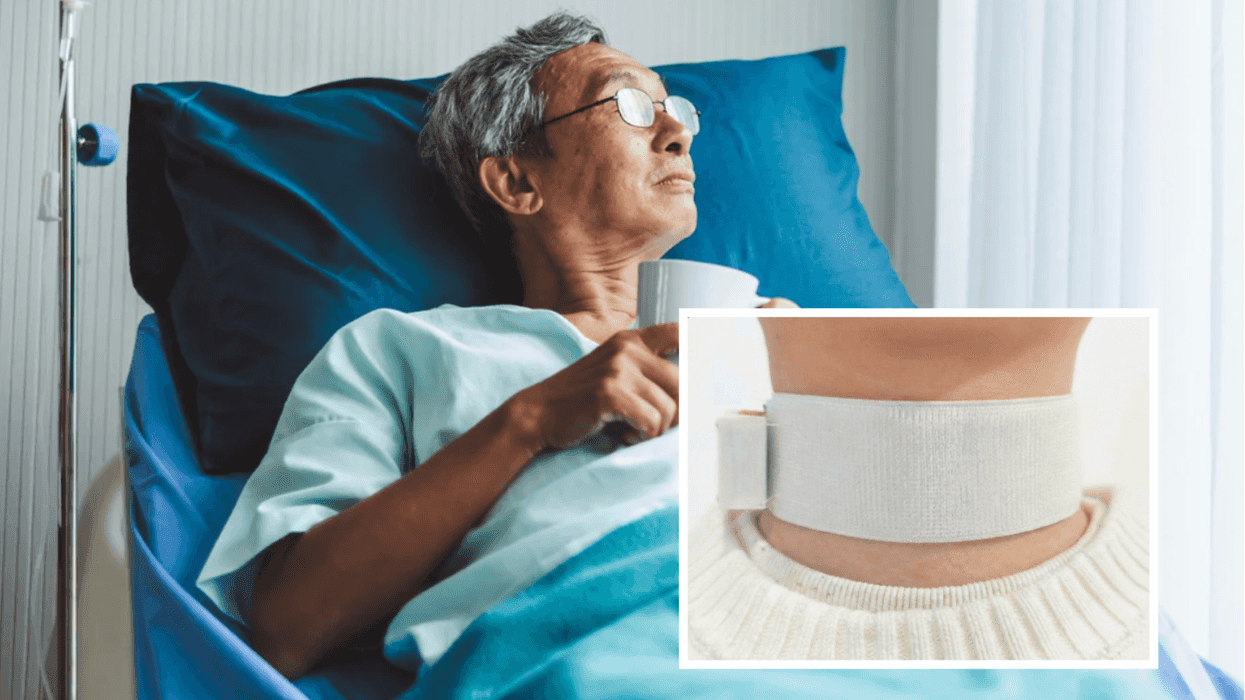Each year, GOOD celebrates 100 people from around the globe who are improving our world in creative and innovative ways—advocates, inventors, educators, creatives, business leaders and more who are speaking up, building things, campaigning for change, and ultimately refusing to accept the status quo.
In this section, meet 12 individuals modernizing medicine and revolutionizing healthcare.
Hossam Haick’s App Can Smell What Ails You
Haifa
Hossam Haick can’t diagnose cancer just by looking at you, but he’s close. The 40-year-old chemical engineer and nanotechnologist at the Technion-Israel Institute of Technology holds dozens of patents for noninvasive diagnostic technology: nanomaterial-based chemical sensors, self-healing “electronic skin,” breath analysis, and more. Last spring, he launched the SniffPhone, a breathalyzer plug-in for smartphones that can detect over 23 diseases, including lung cancer. As easy as talking to Siri.
Dr. David Walton Helps Poor Hospitals Go Digital
Boston
Before joining global technology consultancy ThoughtWorks as director of global health, Dr. David Walton built and directed medical facilities in Haiti, including the country’s first women’s hospital. Now he helps resource-poor regions digitize medical infrastructure. During the Ebola crisis in Sierra Leone, Walton’s team designed the electronic records system that enabled patient data to move from contaminated red zones to pharmacists in safe green zones. This year, ThoughtWorks will deploy its open-source hospital management software to help modernize facilities in India, Nepal, and Bangladesh.
Marjaneh Halati Gives Hope to Abuse Victims
Tehran
While attending the University of Cambridge, social psychologist Marjaneh Halati wrote her Ph.D. thesis on the often abusive institution of marriage in Iran and has devoted her life since to helping vulnerable women recover from its damages. Halati’s Omid-e-Mehr Foundation in Tehran offers three-year rehabilitation programs providing therapy, education, vocational training, and housing to victims of trauma and abuse. Currently, she’s building a career and entrepreneurship center for the program’s graduates to combat Iranian hiring norms that discriminate against female runaways.
Sangu Delle Shells Out for a Stronger Africa
Accra
Ghanaian venture capitalist Sangu Delle’s stacked portfolio of African-owned, social-impact startups is particularly health venture heavy. Delle’s company, Golden Palm Investments, has funded revolutionary endeavors, like mPharma’s cloud-based drug prescription software, Rabito Clinic’s rural healthcare and dermatology services, and Stawi’s fortified porridge flours. Next on Delle’s agenda is launching an angel fund focused on female entrepreneurs in Africa.
Dr. Laila Bugaighis Modernizes Medicine in Rural Libya
Washington, D.C.
Prior to leaving her hometown of Benghazi, Dr. Laila Bugaighis logged 23 years in public health. She taught at Libya’s medical university, crafted policy reform, and served as CEO of Benghazi Medical Center, where she partnered with Massachusetts General Hospital to develop high-standard ambulance and emergency childbirth services in rural areas—a project that had been derailed by civil war. An outspoken women’s rights advocate, Bugaighis recently moved to Washington, D.C., as threats and violence toward female political activists escalated in Libya.
Dr. BJ Miller Redesigns Death with Empathy
San Francisco
Dr. BJ Miller, executive director at the Zen Hospice Project, is a man with an illuminated view of his own mortality. As a student at Princeton, a near-fatal electrical shock cost Miller both legs below the knee and half of one arm. The experience continues to inform his work as a pioneer in palliative care, merging traditional medical services with an attitude that embraces dying as “an essential part of life.” This year, he’s fighting to make insurance companies cover peaceful end-of-life care.
Gidi Stein Prevents Medical Mess-ups
Ra’anana
Israeli computational biologist Gidi Stein co-founded MedAware after hearing about a 9-year-old patient dying from a prescription error. Using algorithms that analyze data from billions of prescriptions, MedAware products can identify potentially erroneous medications in real time, map institutional risks, and even answer pharmacists’ and clinicians’ treatment questions. The company launches in the U.S. later this year.
Lisha McCormick Strives for a Healthier Liberia
New York City
Last Mile Health, an organization that trains and equips community health workers in rural areas, was founded in a closet in Liberia in 2007. Over the past two years, its staff and trainees led the coun- try’s Ebola response—Liberia was declared free of the virus in January. Now Lisha McCormick, the organization’s chief development officer, is shaping policy with the Liberian government to professionalize those workers and deploy 4,000 personnel across all remote villages in the country, bringing primary care to an estimated 1.2 million people.
Zhen Gu is the Needle-Averse Patient’s Hero
Chapel Hill
To minimize the suffering of diabetics and cancer patients, University of North Carolina biomedical engineer Zhen Gu wants to kill the syringe. He’s currently developing two precision drug-delivery systems: a topical “smart insulin patch” that releases insulin automatically into the bloodstream and nanocapsules that deliver anticancer drugs to the most active destinations.
Dr. Joe Cohen Aims to Rein In Malaria
Brussels
When pharmaceutical company GlaxoSmithKline appointed Cohen to lead its malaria vaccine program in ’87, he admits he knew little about the infectious disease. Last July, the RTS,S malaria vaccine candidate that Cohen, now quasi-retired, helped invent became the first ever to receive international regulatory approval. It begins pilot deployment in sub-Saharan Africa this year.
Dr. John Brownstein Takes Disease Surveillance Mainstream
Boston
Dr. John Brownstein’s field of work barely existed when he started using online news aggregators and social media to track emerging public health threats in real time. A decade later, HealthMap remains the gold standard for digitally monitoring disease outbreaks. In the years between, Brownstein built a platform that tracks live street prices for diverted prescription drugs, delivered flu shots through Uber, and consulted for Contagion. Last July, Boston Children’s Hospital took computational epidemiology mainstream, appointing Brownstein chief of innovation.
Sara Tifft’s Contraceptive Access Crusade
Seattle
It began with condoms. In the late ’80s, Sara Tifft entered the global health sphere directing a contraceptive social-marketing program in Bolivia. These days, she is a leader in global health nonprofit PATH’s reproductive health program, geared toward the 225 million women worldwide who lack access to modern contraception. Tifft helms PATH’s pilot program for the Sayana Press device—as of September, the first self-injectable contraceptive approved in the United Kingdom—in Burkina Faso, Niger, Senegal, and Uganda.
















 Winter weather.
Winter weather. 
 Honorable J. Cedric Simpson at work in the courtroom.Image from
Honorable J. Cedric Simpson at work in the courtroom.Image from  A close up of Judge Simpson.Image from
A close up of Judge Simpson.Image from 
 Anxious young woman in the rain.Photo credit
Anxious young woman in the rain.Photo credit  Woman takes notes.Photo credit
Woman takes notes.Photo credit 
 Siblings engaging in a pillow fightCanva
Siblings engaging in a pillow fightCanva


 Revenge can feel easier than forgiveness, which often brings sadness or anxiety.
Revenge can feel easier than forgiveness, which often brings sadness or anxiety. 
 In the past two years, two malaria vaccines have become available for babies starting at 5 months of age.
In the past two years, two malaria vaccines have become available for babies starting at 5 months of age. By exploiting vulnerabilities in the malaria parasite’s defense system, researchers hope to develop a treatment that blocks the parasite from entering cells.
By exploiting vulnerabilities in the malaria parasite’s defense system, researchers hope to develop a treatment that blocks the parasite from entering cells. Created with
Created with